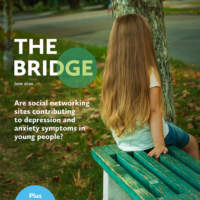ACAMH Website Content Types
-

DBT-A can enhance emotion regulation in ethnic minority youth
Ethnic minority youth often experience environmental and culturally relevant stressors, putting them at risk of developing self-regulation difficulties and engaging in self-harm.
Read more -

Can we predict (complex) PTSD in young people in foster care?
Adverse, early life experiences put young people at risk of developing psychological difficulties. Potential difficulties might include post-traumatic stress disorder (PTSD) or the newly proposed, complex PTSD.
Read more -

Can genetic discoveries for age-at-first-birth predict disinhibitory behaviours?
Researchers have tested the hypothesis that molecular-genetic influences on age-at-first-birth can predict disinhibition.
Read more -

Boys and girls show different vulnerabilities to maternal postnatal depression
Findings suggest that prenatal anxiety and depression confer risk in different ways in boys and girls, and later work confirmed that there might be sex differences in the biological underpinning of psychopathology.
Read more -

June 2020 – The Bridge
Includes ‘Are social networking sites contributing to depression and anxiety symptoms in young people?’
Read more -

Which young people are at greatest risk of repeat admission to psychiatric care?
Researchers in Canada have published their latest data on the demographic, socioeconomic and clinical predictors of youth re-admission to inpatient psychiatric services
Read more -

Suicidal ideation in children: is it written all over their face?
A study recently published in the JCPP, has investigated how suicidal thoughts might develop in childhood, focusing on the parent–child relationship.
Read more -

Shared genetic risk underlies the co-occurrence of ADHD and other psychiatric symptoms
Data from twin studies suggest that the co-occurrence of ADHD with other psychiatric disorders is due, in part, to shared genetic risks.
Read more -

Occasional cry-it-out has no adverse effects on infant–mother attachment or behavioural development
The debate over letting an infant ‘cry-it-out’ or responding immediately has been ongoing for decades. Now, researchers at the University of Warwick have provided important evidence to inform this debate.
Read more -

Lost sleep contributes to mood disturbances in teens with ADHD
Stephen Becker and colleagues at Cincinnati Children’s Hospital Medical Center show that short sleep duration is a causal contributor to affect and mood disturbances in teenagers with ADHD.
Read more